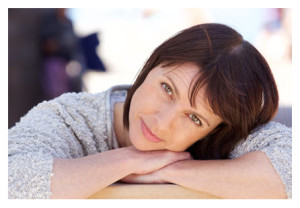When an old friend pops into town unexpectedly, if you’re anything like me, you drop everything and meet her. And so, my usual Sunday pasttime, which involves hours with The New York Times, was set aside to spend those hours with my friend.
 There was a great deal of pleasure sitting across from a person I have known for a quarter of a century and for whom I do not need to wear any particular mask.
There was a great deal of pleasure sitting across from a person I have known for a quarter of a century and for whom I do not need to wear any particular mask.
We all wear masks, don’t we? And there’s nothing wrong in that.
It’s expected. It’s kind. It’s helpful.
We put on the reassuring smile for our children in worrisome times, we ‘fake it til we make it’ with the new employer, and we feign cheerful enthusiasm for our spouses and significant others, when they want us to join in an activity we don’t especially enjoy.
Yet carrying the mask becomes exhausting if we do it for many years, if we rarely let it down, or if we feel we must wear it in order to get by. One of the great satisfactions in longtime friendships is to be ourselves — without mask — and to know we won’t be judged.
Aging Out of Our Roles
As my friend spoke of where she is and where her focus is — her children are both in college, her husband is a good man but still very involved in his career, their lives calm and pleasant enough — it was evident that she is, like me, floating. She is aging out of one of her current roles, having left another (temporarily) behind several years earlier.
This morning, recalling our conversation, I had a thought about our American tendency not to live in the present and the way we chastise ourselves (and others) for that seemingly sorry condition.
 There is nothing especially original in stating that we don’t wish to ‘feel’ what is disagreeable or unsettling; we survive tough times by dreaming, by visualizing, by putting our minds elsewhere. If we do not live in the present, to some degree, isn’t it a rational choice? It seems very human to avoid feeling, fully, the loss of roles we love, roles we understand, roles that are familiar, roles that give us purpose in each day; to feel the loss of hope that it’s possible to rectify the situation.
There is nothing especially original in stating that we don’t wish to ‘feel’ what is disagreeable or unsettling; we survive tough times by dreaming, by visualizing, by putting our minds elsewhere. If we do not live in the present, to some degree, isn’t it a rational choice? It seems very human to avoid feeling, fully, the loss of roles we love, roles we understand, roles that are familiar, roles that give us purpose in each day; to feel the loss of hope that it’s possible to rectify the situation.
And if we have spent our lives working and earning a living, providing for our families, raising our children — when these tangible, societally sanctioned aspects of our days slip away, then what?
Retirement? Says Who?
Of course, this is precisely the reason for our “reinvention revolution,” which results from a combination of factors — not only personal and social, but economic. No one wants to be put out to pasture when they feel they’re in their prime (or at least, not breaking a sweat), much less when making a living is an utter necessity.
This is also the challenge when people retire, at least in the formerly traditional model of the American family, as women are required to manage the transition when a spouse ceases going to work and is knocking about the house. If the other spouse works from home, that work is interrupted. And either partner that is still anxious to be productive may be in need of new purpose.
Talk about disruption, identity crisis, potential marital friction… however predictable this transition.
I am intentionally not speaking of disruptions like accident or illness, death or divorce, layoff or unemployment; certainly, some degree of distracting ourselves from the here and now results in a lessening of the pain. And presumably, as we process endings and embark on beginnings over time, our methods for managing loss become less and less necessary.
So. Floating. Disorientation. Are we talking about a midlife crisis? An identity crisis? Something less severe, and a mixture of both?
All Transitions Are Hard; Supporting Each Other Helps
This isn’t about age so much as it is about stage, and the nature of transitions that are thrust upon us rather than chosen. These transitions may toss us into the deep end at 35 as well as 55. The ease with which we can identify options and then avail ourselves of them will hasten or retard the changes to come.
And in the case of my friend who had a thriving career for years that continued partway through raising her children — she’s a brilliant, gracious, and vivacious woman — talking helped; friendship helps.
As she ponders what comes next, I couldn’t help but see the similarities between us.
 Those similarities are not in situation exactly — her marriage affords her security I do not have — but deep kinship in the discomfort with the present, the sense of floating, the desire for competence to contribute to something meaningful.
Those similarities are not in situation exactly — her marriage affords her security I do not have — but deep kinship in the discomfort with the present, the sense of floating, the desire for competence to contribute to something meaningful.
This I see as one of the great challenges for those of us in our 50s and 60s and beyond, as we ask ourselves: Who are we — if our skills go unused, and the chambers of our hearts are suddenly and startlingly vacated?
Filling the Present With Meaning
With or without the need to make a living, don’t we want our present to anchor us in some way? To reinforce a sense of identity and worth? Don’t we need to find new roles that we personally value, and ideally, that society will value as well? Don’t we still want and need to care for others, to build something, to earn money, to be seen, to be heard, to be touched — as well as to see, to hear, and to reach out to touch others?
For those fortunate enough to afford it, isn’t it possible to feel fulfilled in the here and now beyond a state of ‘busyness’ — by seeking what makes you feel most alive, by recognizing the importance of giving your days meaning, whether by teaching or traveling, studying or sculpting, starting a business, making music, or making love?
Living in the here and now, it seems to me, is also a matter of habit. And whatever is taking place in our lives, there are moments when it is habit and habit alone that prevents us from pausing even for 10 seconds — to savor the taste of morning’s piping French Roast, a perfectly toasted piece of bread, or looking up at the sky and breathing in its beauty. Isn’t it worth trying to restore those habits that take so little effort yet provide so much nourishment?
You May Also Enjoy
Beautifully poignant post, and you so well articulate the ‘New Midlife’ that we find ourselves confronting these days. I try to savour little snippets of my life every day, and am almost tempted to do the Elizabeth Gilbert happiness jar she so heartily recommends. xx
Good idea!
SEEMS Like WE are in the same SPOT!
STOP.
BREATHE and smell the FLOWERS………….
For me I have a guilt just READING! I should be doing something!
WE were SO BUSY for SO LONG……..it seems NOT RIGHT to just sit and BREATHE!
XX
So true, Contessa!
Wonderful thoughts, even though I can’t quite find the “answer” to so many questions. The nature of changing roles evokes melancholy and possibility all at once, for me. I wonder how those feelings will intensify as time moves forward?
Melancholy and possibility. So well said, Missy.
Your writing is so special! It almost always resonates personally, challenges me to think more deeply and provides me with a spin on the very things I’m facing!
So glad, Sheila. Thank you. And happy new year!
Though I’m an unusually late bloomer and an artist (so don’t imagine I’ll ever stop working), I see this all around and even with my husband. Your living in the moment prescription sounds like a remedy for everybody. Beautiful post.